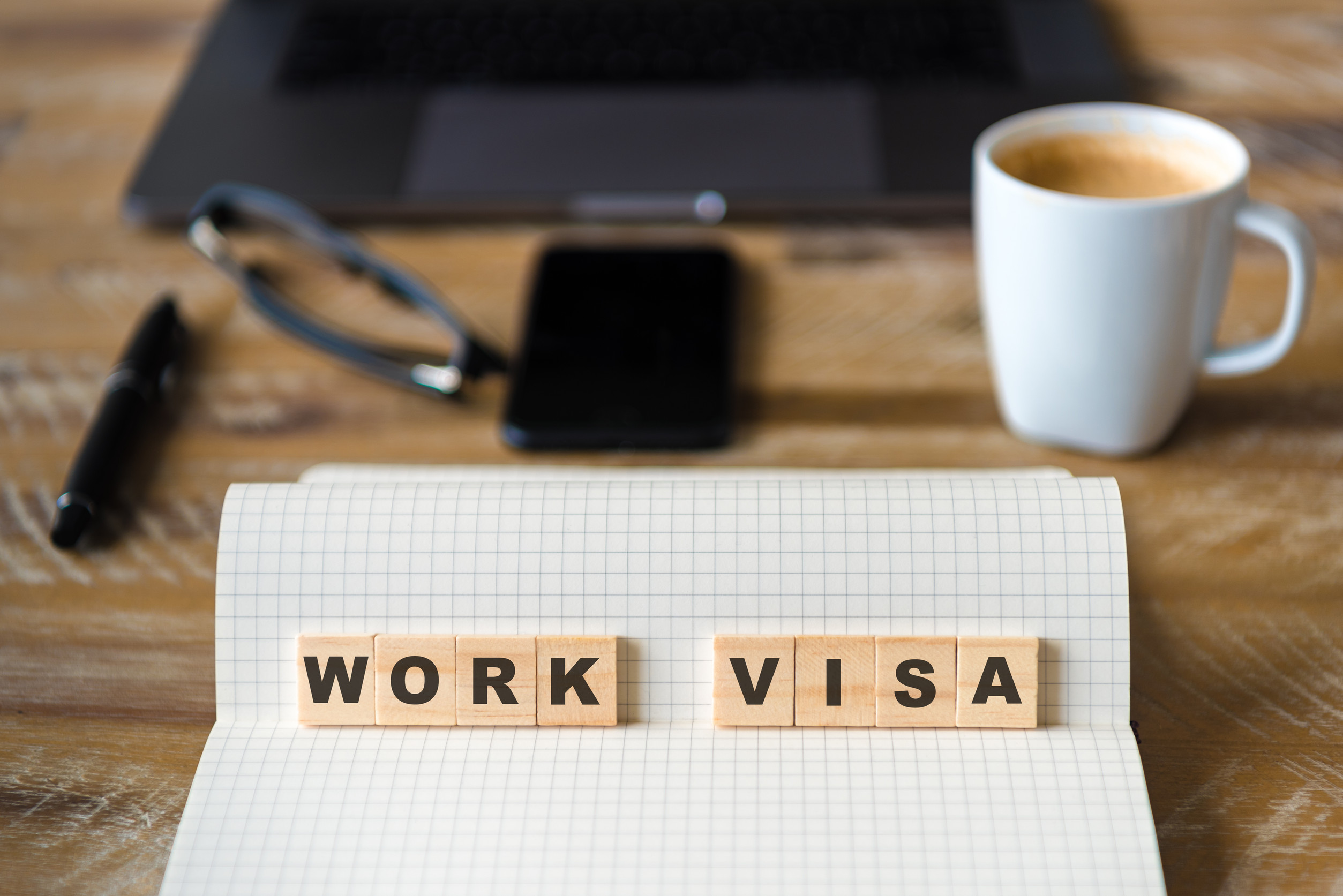Types of South Korea Work Visas
South Korea offers several types of work visas, each catering to different categories of employment and professional qualifications. Below are the main types of work visas:
|
Visa Type |
Description |
|
E-1: Professor Visa |
|
|
E-2: Foreign Language Instructor Visa |
|
|
E-3: Research Visa |
|
|
E-4: Technological Guidance Visa |
|
|
E-5: Professional Visa |
|
|
E-6: Arts and Entertainment Visa |
|
|
E-7: Specially Designed Instructor Visa |
|
|
D-8: Business Investment Visa |
|
|
D-9: International Trade Visa |
|
|
D-10: Job Seeker Visa |
|
Eligibility Criteria for South Korea Work Visas
To apply for a South Korea Work Visa, foreign nationals need to meet specific eligibility criteria:
Job Offer: Applicants must have a valid job offer from a South Korean employer, who will typically sponsor the visa application.
Education: Most work visas require at least a bachelor’s degree in a relevant field, although specialized professions may require additional qualifications.
Work Experience: Certain visas, like the E-7 for professionals, may require relevant work experience in the field.
Language Proficiency: While not always required, knowledge of Korean or English can be helpful, especially for roles involving communication.
Health and Criminal Background: A medical certificate and a criminal background check from the applicant’s home country are typically required.
Age Restrictions: Some visas, such as the E-2 for teaching English, may have age limits.
Visa Sponsorship: A South Korean employer must sponsor the application.
Financial Stability: Proof of sufficient funds may be required, especially for self-employed or business-related visas.
Specific Requirements: Each visa has its own criteria based on the job, such as the E-2 for teaching English or the E-7 for professionals in specialized fields.
Requirements for South Korea Work Visas
The application requirements for a South Korea work visa vary by visa type but generally include the following documents and conditions.
- Valid Passport:
- Must have at least six months of validity remaining.
- At least two blank pages for visa stamps.
- Visa Application Form: Completed and signed application form (available from the South Korean embassy/consulate or online).
- Passport-Sized Photos: Two recent color photos that meet South Korean visa photo specifications.
- Employment Contract: A signed copy of the contract with the South Korean employer specifying job details, salary, and duration of employment.
- Criminal Record Certificate: A police clearance certificate from the applicant’s home country, typically apostilled or notarized.
- Health Certificate: Proof of good health, which may include a medical checkup or vaccination records, depending on the visa category.
- Visa Fee: Payment of the applicable visa processing fee, which varies by visa type and processing location.
South Korea Work Visa Application Process
To work legally in the country, obtaining the appropriate work visa is essential. The application process involves a combination of preparation, coordination with your employer, and submission of the necessary documents. Below is a simplified guide to help you navigate the process with ease.
Secure a Job Offer
The first step is to obtain a valid job offer from a South Korean employer, who will typically initiate the visa application process
Prepare Required Documents
Gather the necessary documents, including your passport, employment contract, educational qualifications, proof of work experience (if applicable), medical certificate, and a criminal background check
Submit Application
Your employer will submit the completed visa application, along with the required documentation, to the relevant South Korean immigration authorities
Attend an Interview (if necessary)
Depending on the visa type, an interview may be required. This is common for roles such as English teaching positions
Wait for Visa Approval
After submission, the application will be processed. Upon approval, you will receive your work visa, allowing you to legally enter South Korea for employment
After receiving your visa, travel to South Korea. Within 90 days of arrival, apply for an Alien Registration Card (ARC) at your local immigration office to establish your residency.
How to Apply for the Certificate of Visa Issuance (CVI)
The Certificate of Visa Issuance (CVI) is a crucial part of the South Korea work visa process. It must be obtained by your employer before you can apply for a work visa. Here's how the process typically works:
- Employer Initiates the Application: Your South Korean employer applies for the CVI on your behalf at the local immigration office or through Hi Korea.
- Required Documents: The employer submits documents such as your employment contract, proof of qualifications, and business registration.
- CVI Approval: The immigration office processes the application, usually within 1-2 weeks, and provides the CVI number.
- Use CVI for Visa Application: Your employer provides the CVI number, which you’ll use to apply for your work visa at the South Korean embassy or consulate.
Dependent Visas for South Korea Work Visa Holders
Spouses and children of work visa holders can apply for dependent visas (D-3), allowing them to live in South Korea while the primary visa holder works.
- Visa Validity: Dependent visas are tied to the primary visa holder’s status. If the work visa expires or is canceled, dependent visas will also be affected.
- Work Restrictions: Dependent visa holders cannot work unless they apply for a separate work visa, such as E-7 or D-10, if eligible.
- Duration and Renewal: Dependent visas match the validity of the primary visa and can be extended when the primary visa is renewed.
- Eligibility: Dependent visas are typically available for spouses and children (under 19 years old), with possible exceptions for older children who are financially dependent.
Validity of South Korea Work Visas
The validity of South Korea work visas depends on the specific visa type and the terms of employment. Here’s a general overview of validity periods for common work visas:
- E-1 to E-7 Work Visas (Professional Employment): Typically valid for 1 to 2 years, depending on the employment contract. Renewable upon extension of the employment contract or approval by the employer and immigration authorities.
- D-8 Business Investment Visa: Valid for 1 year initially and renewable based on continued business operation and compliance with investment requirements.
- D-9 International Trade Visa: Issued for up to 1 year, renewable based on the nature and duration of the trade activities.
- D-10 Job Seeker Visa: Valid for 6 months, with the possibility of a 6-month extension, for a total of up to 1 year.
- Alien Registration Card (ARC): Regardless of the visa type, foreign nationals staying in South Korea for more than 90 days must obtain an Alien Registration Card (ARC). The ARC validity aligns with the visa duration and must be updated if the visa is extended.
Renewal Process for South Korea Work Visas
Renewing a work visa in South Korea is essential for continued employment or activities. Submit your renewal application at least 1-2 months before your visa expires to avoid penalties for overstaying.
Required Documents
- Employment Contract: Updated contract showing continued employment.
- Proof of Activity (D-8/D-9): Business or trade documents, such as tax records, financial statements, or contracts.
- Updated Personal Information: Recent passport photos, address proof, and your Alien Registration Card (ARC).
Submission and Processing
Submit the renewal application at your local immigration office or through the Hi Korea portal. Processing typically takes 1-6 Working Days. Ensure your ARC reflects the new validity period after approval.
Late renewals may result in fines or restrictions, so early action is advised. Employers often assist in preparing and submitting the necessary documents.
Processing Time for South Korea Work Visas
The processing time for South Korea work visas varies depending on the visa type, the volume of applications, and the location where the application is submitted. Below is an overview:
- Initial Visa Application: Typically takes 1-6 Working Days, depending on the type of work visa and the applicant's country of residence.
- Certificate of Visa Issuance (CVI): Processing by the Korean Immigration Office usually takes 1 to 2 weeks. This step is completed by your employer or sponsor.
- Renewal Applications: Renewal processing also takes approximately 1 to 4 weeks. It’s recommended to apply at least 1-2 months before your visa expires to account for potential delays.
- Expedited Processing: In urgent cases, some embassies or consulates offer expedited services for an additional fee, reducing the processing time to a 24 Hours.
Fees and Payment Methods for South Korea Work Visas

The fees for South Korea work visas vary depending on the type of visa, the applicant's nationality, and the processing location. Fees are generally set by the South Korean embassy or consulate handling the application.
Payment Methods
- Embassy/Consulate: Most embassies and consulates accept payments via cash, credit card, or money order. Check with the specific embassy for accepted payment methods.
- Official Korea Portal: If applying online via the official Korea portal, payments can typically be made through electronic payment methods, such as credit or debit cards.
- Bank Transfers: In some cases, you may be required to make payments via bank transfer. Consult the embassy or consulate for details on this option.
Key Considerations for South Korea Work Visas
If you’re planning to work in South Korea, here are the key points you should know:
- Visa Types: Different visas are available based on the type of job. Popular options include E-1 for professors, E-2 for language instructors, and E-7 for specialty occupations.
- Employer Sponsorship: Most work visas require a South Korean employer to sponsor your application, including submitting documents like the Certificate of Visa Issuance (CVI).
- Visa Validity & Renewal: Work visas are typically valid for 1-2 years and can be renewed. Renewal applications should be submitted before the visa expires to avoid penalties.
- Alien Registration Card (ARC): Within 90 days of arrival, you’ll need to apply for an Alien Registration Card, which serves as your official ID in South Korea.
- Documentation Requirements: Required documents may include your employment contract, proof of qualifications, a criminal background check, and passport photos, among others.
- Processing Time: Visa processing typically takes 1-6 Working Days, so plan to apply in advance.
- Work Restrictions: Some visa types may limit the scope of work. For example, the E-2 visa restricts you to language teaching roles.
- Health Insurance: Foreign workers are required to join South Korea's National Health Insurance, which is deducted from your salary.
Frequently Asked Questions
The CVI is an approval document obtained by your employer from South Korean immigration, allowing you to apply for a work visa.
Visa processing usually takes 1-6 Working Days depending on the visa type and the embassy or consulate.
Yes, your spouse and children can apply for dependent visas, allowing them to live in South Korea while you work.
While some companies use English, knowing Korean can be beneficial, and some visa types may require basic language skills.
To renew your visa, submit an application before it expires, including documents like a renewed employment contract and proof of continued employment.
Yes, foreign workers are required to enroll in South Korea's National Health Insurance program, which is usually deducted from your salary.
Content Disclaimer: Although this information was last updated in June 2025, we recommend verifying with the appropriate agencies, embassies, and airlines to ensure complete accuracy regarding your travel plans.


To help us improve